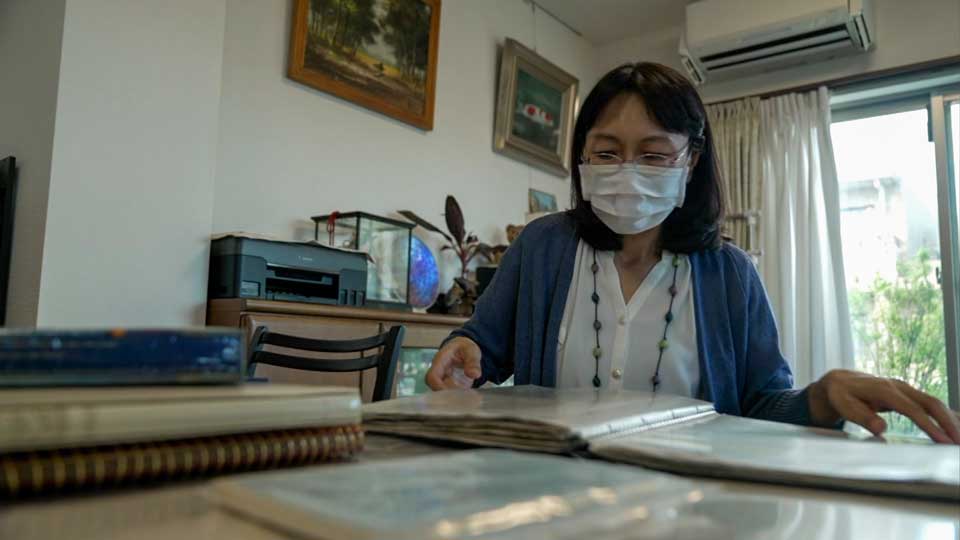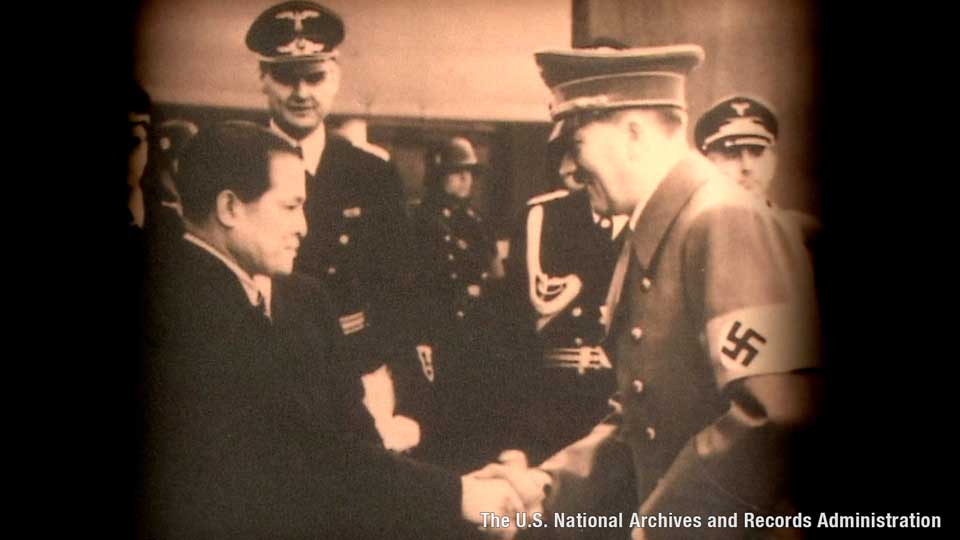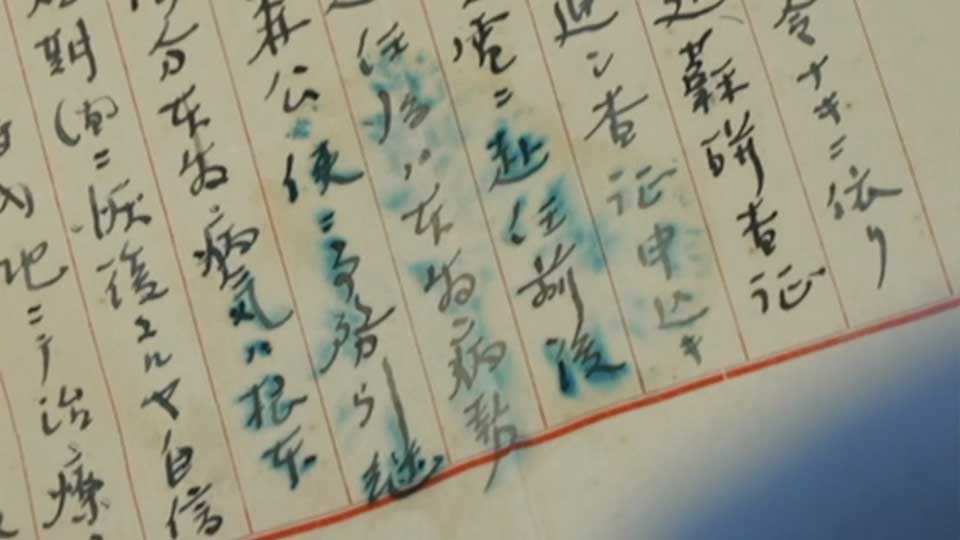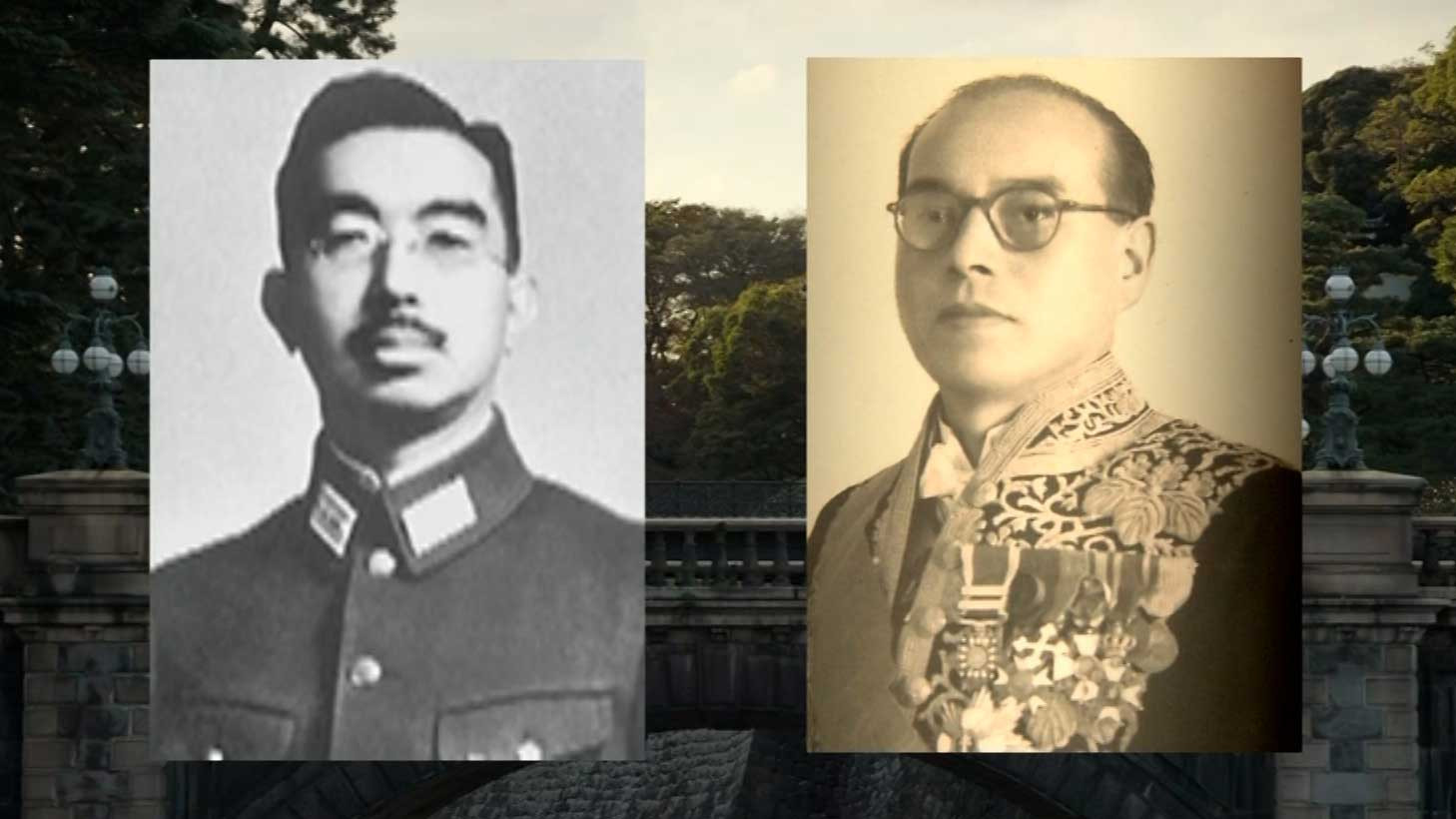Takagawa Kuniko remembers her grandfather, Okubo Toshitaka, telling a story about meeting Emperor Showa. But it is only recently, as she went through his memoirs, that she understood why they met.
Okubo held senior posts in the Foreign Ministry and served as Japan's envoy to Hungary during the 1940s. He wrote about feeling powerless to stop Japan's headlong march into war.
"There was absolutely no leeway to put diplomacy's good sense to work. When the situation was unfavorable, people would skirt the truth or simply lie."
Okubo thought Japan's diplomatic activities were shortsighted. When the country signed the Tripartite Pact with Germany and Italy in 1940 he was head of the Foreign Ministry's treaties division.
He warned that the pact was paving the way to war with the United States, and urged people to respect its industrial might. A mid-ranking army officer brushed off his concerns, saying, "if we take time to think about America's strength then we will never be able to do anything."

Takagawa says the memoirs make it clear her grandfather was opposed to the pact, but he was told to either support it or be transferred to Harbin in China—a career dead-end. He kept his objections quiet.
But he would raise his voice two years later at a meeting in Berlin. He had been named Japan's envoy to Hungary and went to meet Japan's ambassador to Germany, Oshima Hiroshi.

Oshima had close ties to Adolf Hitler and exerted a strong influence over the Japanese military.
Nazi Germany had invaded the Soviet Union 17 months earlier, expecting it to collapse quickly. But its military met strong resistance and found itself mired in a protracted and costly conflict.
Oshima wanted Japan to support Germany by joining the fight against the Soviet Union.
"Oshima said 'The German-Soviet war is advancing to Germany's advantage. One final push is all that's needed for victory. If Japan attacks the Soviet Union from the east, they will capitulate. We should report this to our government.'"
Oshima was reportedly an intimidating figure, but Okubo was the first person present who dared question Oshima. He understood from his Hungarian military sources that Germany was certain to lose, and joining the fight would be disastrous for Japan.
"I have word that the Soviet Union is ramping up their forces in anticipation of Japan's possible moves. So that could put us in a compromised position."
Watch Video: 11:21
As a result, Oshima's opinion never reached the ears of the Japanese government. But leaders in Tokyo continued to rely on intelligence he sent from Germany, which persuaded them to take an ever more aggressive stance. Okubo, after clashing with Oshima, was relieved of his post as envoy.
Takagawa found what appeared to be a draft of a telegram from the time. Okubo was asking the Foreign Ministry to bring him back to Japan. Some of the characters are smudged, and Takagawa believes that is from her grandfather's tears.

Okubo did indeed return to Japan, in January 1944. He wrote about visiting cabinet members, including Foreign Affairs Minister Shigemitsu Mamoru. His message to them was that it was a bad idea to side with Germany.
"I said Germany would certainly lose. They might hold out for a year, or a year and a half at most. So we must end the war as soon as possible. I didn't hold back anything, hoping that the news would reach the Emperor's ears."
It worked. Okubo received a letter stating that the Emperor Showa wished to listen to him directly. On February 29th, 1944, he finally had a chance to explain the situation in Europe to the Emperor in person.
"The Emperor listened very intently. I think he fully understood my message."
It would take another 18 months for Japan to accept the Potsdam Declaration, which laid out the terms of its surrender. But Takagawa says her grandfather always believed that his plea to the Emperor helped him come to that decision.
Takagawa wants Okubo to be remembered as a man of principle whose documented diplomatic efforts played some part in shaping history.

